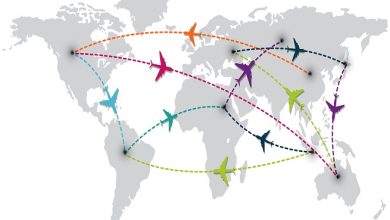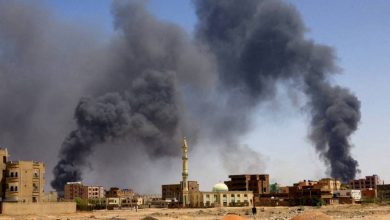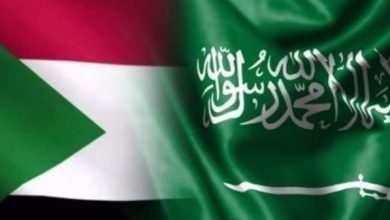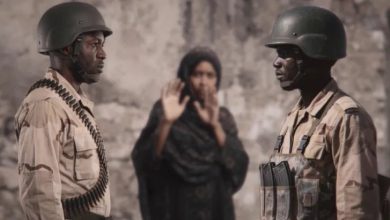After Supporting the Sudanese Army, Khartoum and Asmara…Steps to Develop Relations
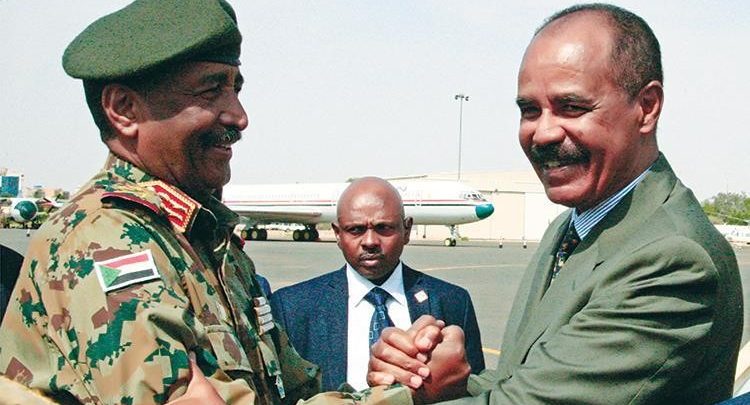
Sudan Events – Abdul Basset Idris
In contrast to the size of the common challenges facing Sudan and Eritrea, the progress of relations and the increase in cooperation between the two countries appears to be much less than it should be. However, Sudan hopes to develop relations with Asmara further, especially after its position in support of the legitimate institutions of the state represented by the Sudanese army.
Sudanese participation:
Vice President of the Sovereign Council, Malek Agar, visits Eritrea, heading the Sudanese delegation to participate in Eritrea’s National Day celebrations. According to a press release issued by the Sovereign Council, Agar will hold talks with President Isaias Afwerki and a number of officials in the Eritrean government to discuss the development of bilateral relations and inform the Eritrean leadership of developments in the wa in Sudan.
Fixed position:
Since the outbreak of the war on April 15 of last year, the Eritrean government has taken a firm position, distancing itself from involvement in supporting the rebel militia, and clearly announced, alongside Egypt, its support for the legitimate state institutions in reference to the army. President Afwerki has criticized African systems and the way they handle the Sudanese crisis, and has become involved. His country is part of the initiative of neighboring countries that called for non-interference in the Sudan war. The Eritrean side began to be interested in the humanitarian repercussions. President Afwerki visited the border areas with Sudan, directing government agencies to receive the Sudanese. Afwerki rejected any media coverage of the displaced, saying that the Sudanese are brothers of the Eritreans and we will not allow photographing them and showing their suffering for international gain, he indicated that they would be welcomed and treated like the citizens of his country.
Swing relationship:
Despite what the relationship between Khartoum and Asmara appears to be these days in terms of communication and open diplomatic channels, the Sudanese-Eritrean bilateral relations are characterized by apathy or cautious calm. The management of official relations between the two countries is surrounded by closed meetings and security and military meetings, rather than managing them through joint ministerial committees that discuss… Economic and complementary relations in the open air. Since the Bashir era, relations between Khartoum and Asmara have become strained and the two countries have entered into a long debate of proxy wars, but ironically, Afwerki maintained the same position on the new Khartoum after the change.
After he welcomed the formation of the military council, Afwerki, commenting on the outbreak of war on his country’s television, said that he warned the generals of the military council against concluding agreements and partnerships in governance with politicians, but he quickly began to deal with a degree of caution, after the formation of the transitional government led by Hamdouk, and according to analysts, more What Afwerki fears is the transfer of the Sudanese revolution model to his country, in light of an internal Eritrean arena pregnant with explosive factors and an experienced opposition active in exile inciting revolution and overthrowing him.
Despite this, the few periods in which the relationship passed quietly seem to be the most effective for Eritrean influence in Sudanese affairs, especially the Asmara Peace Agreement in 2006 between the government and the Beja Conference in eastern Sudan, in addition to a previous agreement known as the Eight Freedoms that was signed between Khartoum and Asmara in 1996, but was not implemented.
Exchange of benefits:
During the past month, the two sides began to revitalize economic relations by opening border crossings to stimulate the movement of trade and citizens. The city of Port Sudan witnessed talks led by the Director of Sudanese Customs with the Eritrean side with the aim of opening the crossings in preparation for preparing a flexible agreement for trade. The step is surrounded by many technical complications, the most important of which is the absence of an verified and accurate information base about the volume of trade and economic exchange between the two countries, and the existence of links and relations between investors in the two countries.
Common challenges:
The two countries overlooking the Red Sea face common external challenges. Sudan and Eritrea suffer from Western interference, tension in relations with Washington, and support for the civil and armed opposition. In this context, the Eritrean government resolved its position of rejecting Western interference, concluded a strategic framework agreement with Russia, and used the celebration to mark the thirtieth anniversary of relations between the two countries. Asmara and Moscow, with great military cooperation and naval military maneuvers between the two countries in the Red Sea. On the other hand, the sovereign authority in Sudan is still studying the options for its steps to determine its position towards the West or the East. Official Khartoum, for geopolitical calculations and prior knowledge of the impact of the step in an area of traditional Western and American influence, seems to fear the issue of “centrality” and the resulting internal situation that has not yet been resolved in a way that enables it to take action of a fateful decision, just as Eritrea did.
Managing concerns:
On the other hand, both Khartoum and Asmara realize the danger of the relationship between them slipping, and they fear the entry of a third party that would push the relations of the two countries towards tension and conflict. Each party realizes the importance of the other party in the equation of security and stability for the two countries and what could disturb the relations, the causes of which each party seems to be aware of in a neighborhood that contains and represents the vital depth of Sudan and Eritrea.
